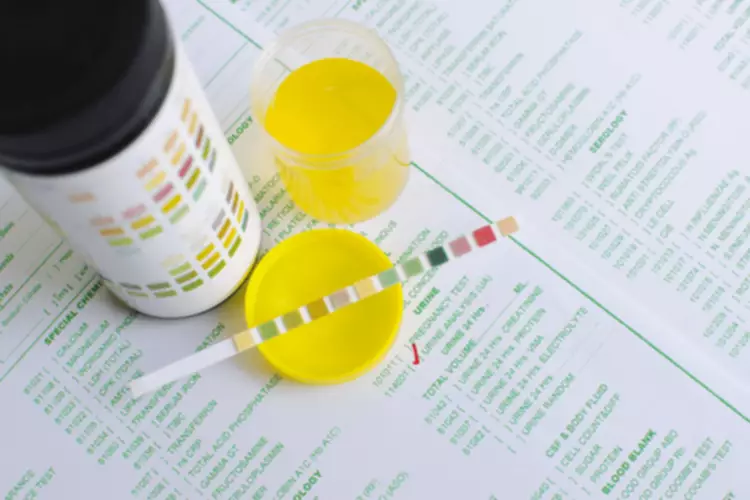Content
Alcohols like whiskey and brandy have high levels of congeners, including tannins and acetaldehyde. These might lead to dehydration more quickly, according to a 2010 study [8] [9]. A 2016 study published in the American Journal of Clinical Nutrition assigned a beverage hydration index (BHI) to various drinks that would determine hydration status after ingestion. Excessive drinking can also lead to a buildup of a toxic substance called acetaldehyde.
The human body loses fluids in many ways, such as sweating, breathing, urination and defecation, as well as through tears and saliva. In general, you become dehydrated when you are not actively and adequately replacing the lost fluids. Dehydration occurs when your body does not have the sufficient amount of fluids (primarily water) it needs to function. In short, you are losing or using more fluids than you are taking in. Because denial is common, you may feel like you don’t have a problem with drinking.
Alcohol intolerance
Dehydration can be a common problem, especially among mature adults. In fact, some research indicates that dehydration occurs in 17% to 28% of older adults and is a frequent cause of hospital admission. For this reason, it is extremely important to take steps to prevent dehydration.
- Dehydration occurs when the body does not have sufficient amounts of fluid to function effectively.
- According to one review, dehydration may impair heart function in several ways, including by negatively affecting blood vessel function and altering blood pressure regulation (17).
- And if you ignore your symptoms, do not drink more fluids, or neglect getting medical treatment when necessary, it can become a serious problem.
- You also can become dehydrated by simply not drinking enough fluids throughout the day.
In some people, symptoms may continue for a few weeks after their last drink, but they will lessen over time. Dehydration—which occurs when you do not get enough fluids—can be serious if it is not treated quickly. Alcohol and caffeinated beverages can both make dehydration worse. Alcohol, for example, is a diuretic, which https://ecosoberhouse.com/ means it cause your body to remove fluids from the blood. If you are drinking alcohol, make sure to pair it with plenty of water to help prevent dehydration. Plus, if you wait until you are thirsty to drink something, you may already be dehydrated, so it’s important to drink water consistently throughout the day.
What causes alcoholic ketoacidosis?
Moderate alcohol use for healthy adults means up to one drink a day for women of all ages and men older than age 65, and up to two drinks a day for men age 65 and younger. Despite various over-the-counter pills and tablets that claim to prevent hangovers, the only guaranteed way to prevent a hangover is to avoid alcohol. A single alcoholic drink is enough to trigger a hangover for some people, while others may drink heavily and escape a hangover entirely. Consuming alcohol carries other health risks besides dehydration. These risks change depending on how much alcohol a person consumes and how often. To stay hydrated, a person needs to take steps before, during, and after alcohol consumption.
- However, it’s important to note that severe dehydration can be life threatening and should be treated by a healthcare professional.
- Delirium tremens occurs in 2% of people with alcohol use disorder and less than 1% of the general population.
- In other words, with each drink, we prevent vasopressin from doing its job.
- Water also helps lubricate your joints, making it easier to move.
- It won’t necessarily cause you to become dehydrated, but it’s something to consider if you can’t figure out why you’re always chugging water.
So, make sure to monitor the amount of fluids your child takes in. Signs and symptoms of dehydration include dark-colored urine, decreased urination, headaches, fatigue, dry skin, decreased skin turgor, and poor concentration. Dehydration may affect your energy levels and mental state, and even be life-threatening in severe cases.
Can dehydration be prevented?
“When you are thirsty, you are already heading down the road to dehydration,” Schreiber says, which is why you need to be drinking water all day long — not just when you are thirsty. “Your body will absorb more water over the course of the day rather than at one shot,” he explains. If no amount of water seems to quench your thirst and you’re urinating excessively, it’s time to check in with your doctor. Electrolytes like sodium, chloride, magnesium, and potassium are necessary to deliver fluids to your cells, she says. If you lose them by excessively sweating at the gym, for example, it really can throw things off. She recommends focusing on drinks with a lot of electrolytes, like coconut water, and eating fruits and vegetables with a lot of fiber to combat these losses.
One small study that included 14 male athletes found that acute dehydration of 3.2% body mass led to increased fatigue perception and also negatively affected exercise endurance (5). So, what can you do to make sure you don’t get that infamous hangover headache caused by dehydration? Let’s find out and get a little background on why alcohol dehydrates you in the first place.
There are many potential causes of dehydration, including vomiting, diarrhea, excessive sweating, medication use, and more (2). According to one review, dehydration may impair heart function in several ways, including by negatively affecting blood vessel function and altering blood pressure regulation (17). Not drinking enough fluids can negatively affect overall health, including heart health. Decreased skin turgor is usually a sign of moderate to severe dehydration (9).

Maria Laura is a trained dietitian, almond butter lover and food enthusiast with over seven years of experience in nutrition counseling. Ultimately, the only surefire remedy for a hangover is to avoid getting one by drinking in moderation or choosing not to drink. During a hangover, a person’s attention, decision-making, and muscle coordination can all be impaired. Also, https://ecosoberhouse.com/article/does-alcohol-dehydrate-you/ the ability to perform important tasks, such as driving, operating machinery, or caring for others can be negatively affected. Hangover symptoms peak when the blood alcohol concentration in the body returns to about zero. Overloading your system with water will only cause your body to eliminate any excess through your urine — taking vital electrolytes with it.


